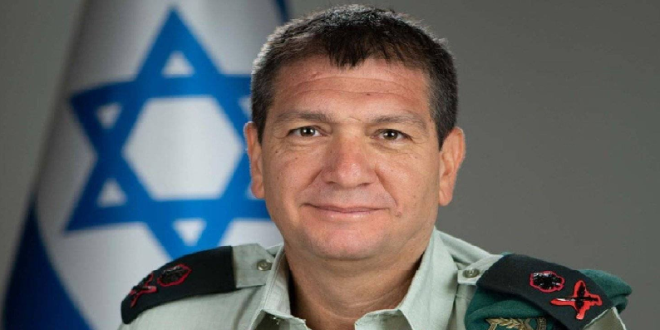23-08-2024
JERUSALEM: Israel’s outgoing head of military intelligence took responsibility for his country’s failures to defend its border on Oct. 7 at his resignation ceremony on Wednesday.
Major General Aharon Haliva, a 38-year veteran of the military, announced his resignation in April and was one of a number of senior Israeli commanders who said they had failed to foresee and prevent the deadliest attack in Israel’s history.
 “The failure of the intelligence corps was my fault,” Haliva said at the ceremony on Wednesday, and he called for a national investigation “in order to study” and “understand deeply” the reasons that led to the war between Israel and Hamas.
“The failure of the intelligence corps was my fault,” Haliva said at the ceremony on Wednesday, and he called for a national investigation “in order to study” and “understand deeply” the reasons that led to the war between Israel and Hamas.
The Oct. 7 attack badly tarnished the reputation of the Israeli military and intelligence services, previously seen as all but unbeatable by armed Palestinian groups such as Hamas.
In the early hours of the morning of Oct. 7, following an intense rocket barrage, thousands of fighters from Hamas and other groups broke through security barriers around Gaza, surprising Israeli forces and rampaging through communities in southern Israel.
Some 1,200 Israelis and foreigners were killed in the attack, most of them civilians, and about 250 were taken into captivity in Gaza, according to Israeli tallies. Some 109 hostages are believed to still be in Gaza, around a third of whom are thought to be dead.
The head of the armed forces, Lieutenant-General Herzi Halevi, and the head of the domestic intelligence agency Shin Bet, Ronen Bar, both accepted responsibility in the aftermath of the attack but have stayed on while the war in Gaza has continued.
In April, the head of Israeli military intelligence has resigned after accepting responsibility for the failures that allowed the devastating Hamas-led attack on Israel on Oct. 7, the military said on Monday.
Major General Aharon Haliva, a 38-year veteran of the military, was one of a number of senior Israeli commanders who said they had failed to foresee and prevent the deadliest attack in Israel’s history.
 “The intelligence division under my command did not live up to the task we were entrusted with. I have carried that black day with me ever since,” he said in a resignation letter released by the military.
“The intelligence division under my command did not live up to the task we were entrusted with. I have carried that black day with me ever since,” he said in a resignation letter released by the military.
He will remain in post until a successor is named. Israeli media and commentators expect further resignations once the main military campaign in Gaza wraps up.
The Oct. 7 attack badly tarnished the reputation of the Israeli military and intelligence services, previously seen as virtually unbeatable by armed Palestinian groups like Hamas.
In the early hours of the morning, following an intense rocket barrage, thousands of fighters from Hamas and other groups broke through security barriers around Gaza, surprising Israeli forces and rampaging through communities in southern Israel.
Some 1,200 Israelis and foreigners were killed in the attack, most of them civilians, and around 250 were taken into captivity in Gaza, where 133 remain as hostages, according to Israeli tallies.
The head of the armed forces, Lieutenant-General Herzi Halevi, and the head of the domestic intelligence agency Shin Bet, Ronen Bar, both accepted responsibility in the aftermath of the attack but have stayed on while the war in Gaza has continued.
By contrast, Prime Minister Benjamin Netanyahu has so far not accepted responsibility for the Oct. 7 attack, although surveys indicate that most Israelis blame him for failing to do enough to prevent or defend against it. (Int’l News Desk)
 Pressmediaofindia
Pressmediaofindia




